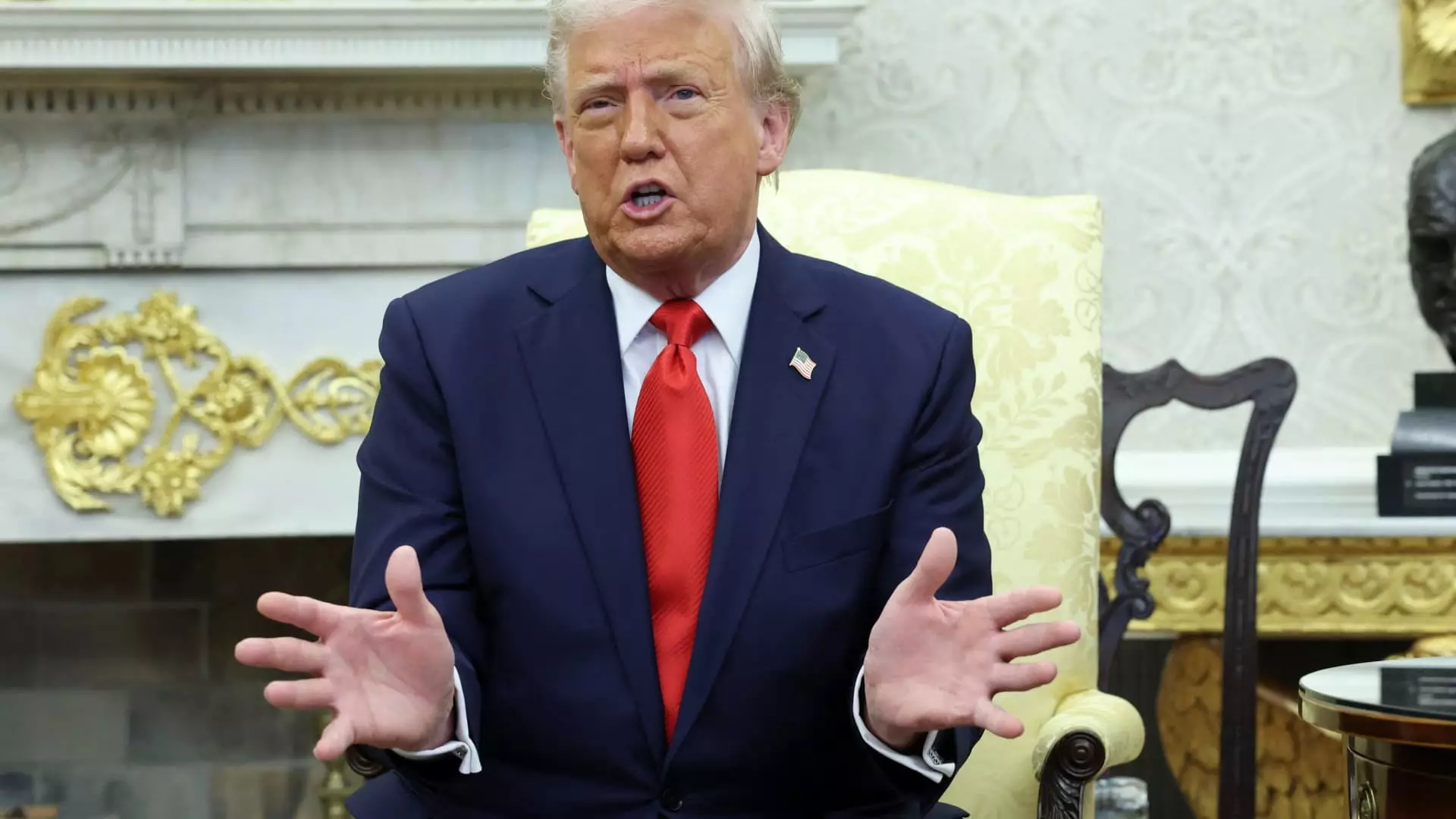The recent announcement from major Wall Street banks about record-breaking stock trading revenues paints a picture that is as fascinating as it is perplexing. With the banks collectively earning over $16 billion in equities trading during a time of political upheaval, we’re led to question the underlying dynamics at play. It signifies not merely a windfall for institutional investors but also an unsettling reality about the current state of American economic policy under the Trump administration.
In retrospect, the initial months of Trump’s presidency were riddled with uncertainty. His aggressive policies, including proposed tariffs and trade restrictions across various sectors, catalyzed volatility in financial markets. Yet, rather than yielding a downturn, it sparked a phenomenal uptick in stock trading. It seems Wall Street, rather than being negatively affected, transformed this chaos into profits. This trend deserves scrutiny: are we witnessing market resilience, or are institutional investors gambling recklessly on a volatile future dictated by erratic political maneuvers?
The Irony of Trump’s Economic Strategy
The prevailing narrative surrounding Trump’s presidency was that it would elevate Wall Street’s investment banking activities, driven by lucrative deals and IPOs. Surprisingly, trading revenues have outstripped expectations, painting a divergent picture where deal-making has remained tepid. Analysts describe the trading performance over the last quarter as “extraordinary” and “spectacular”. However, we must approach these commendations with a critical lens.
This unexpected bloom in trading activity prompts questions about the health of our economy. Are traders thriving because they have managed to game the system, or are they genuinely benefitting from sound economic policy? The situation grows more paradoxical when one considers that rising profits from trading may merely mask deeper structural weaknesses. Many companies are holding back on making definitive strategic decisions, choosing instead to react to the whims of market volatility.
Wall Street vs. Regional Banks: A Tale of Divergence
The dynamics between large U.S. banks and their smaller regional counterparts paints a stark contrast in the American banking landscape. While the former bask in soaring trading revenues, regional banks face mounting challenges. They lack substantial trading operations and find themselves grappling with stagnant loan growth and elevated default rates. This divided economic outcome signals a concerning trend where the benefits of Wall Street’s boom are unequally distributed.
Despite the thriving climate for big banks, the unsustainable environment for regional institutions raises alarms. These smaller players often serve as the backbone for local economies, and their struggle indicates larger systemic issues. As the economy flirts with rising unemployment—predicted to reach 5.8%—it raises an important question: Are Wall Street giants further entrenching financial inequality, leveraging their newfound trading prowess while leaving regional institutions in a vulnerable position?
Opportunities Amidst the Uncertainty
In a climate where professional investors are compelled to seek gains aggressively, the opportunities presented by market volatility become apparent. Institutions benefit from trading desks’ ability to execute swift transactions and provide leverage that enables clients to capitalize on swift market shifts. CEOs of major banks, including Morgan Stanley’s Ted Pick, emphasize the urgency of capitalizing on this volatility as markets respond to ongoing shifts in U.S. trade policy.
It is important to recognize, however, that this strategy does not come without risks. Investors, driven by short-term focus, may become overly reliant on erratic market conditions to generate profits, which could lead to significant repercussions in the future. The increasing dependence on momentum trading questions the sustainability of this trading boom. With financial markets increasingly becoming a game of reaction rather than strategic foresight, the long-term implications for both investors and the economy remain critically uncertain.
The Ethical Consideration of a “Trading-First” Culture
Lastly, we cannot ignore the ethical dimensions surrounding the current trading-centric culture of Wall Street. The meteoric rise in trading revenues stands in stark contrast to the principles of responsible investing and sound corporate decision-making. The intense focus on short-term profits over strategic investments not only undermines the economic fabric of our society but also raises profound questions about accountability.
As these banks ride the wave of volatility for profit, this approach may extract a toll on broader economic stability. The dynamics of trading for short-term gains could lead institutional investors to perpetuate cycles of uncertainty and, ultimately, financial instability. While earnings figures paint a rosy picture for elite financial institutions, the longer-term effects could be detrimental to the very society that supports them.
The dichotomy of profit versus purpose in the financial sector calls for urgent reflection. Amongst the euphoria of record profits, a more responsible and sustainable financial approach must be championed—one that prioritizes not just the gains of a few, but the long-term stability and health of the entire economy.

